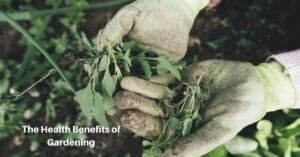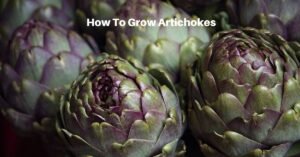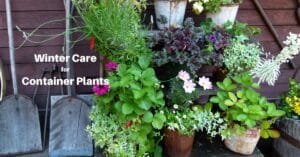Alfalfa sprouts are tiny nutritional powerhouses packed with flavor and goodness. Also known as “lucerne sprouts,” they’re often grown indoors for culinary purposes. But you can also cultivate these vibrant sprouts at home as container plants.
This guide will walk you through growing alfalfa sprouts in your outdoor space, from selecting the right seeds to harvesting your crisp, fresh sprouts.
What Are Alfalfa Sprouts
Alfalfa sprouts are young seedlings of the alfalfa plant (Medicago sativa), a member of the legume family. Alfalfa is a versatile forage crop grown to feed livestock, and its name is derived from the Arabic word “alfacfacah,” which means “father of all foods.”
Sprouts are rich in essential nutrients, including vitamins, minerals, and proteins. Their delicious taste makes them a popular choice for salads, sandwiches, and garnishes.
Selecting Alfalfa Sprout Seeds
Picking high-quality alfalfa sprout seeds is essential for a successful harvest. Look for seeds labeled explicitly as suitable for sprouting; these are free from pathogens that can be harmful if you consume your sprouts raw.
Garden centers, health food stores, or online retailers are great places to find these seeds. Ensure the seeds are within their expiration date and free from any signs of damage or contamination.
Order Alfalfa Sprout Seeds Online
Preparing the Sprouting Container
Alfalfa sprouts grow best in shallow containers or trays. You can use various materials, such as plastic or glass, as long as the container is clean and has drainage holes.
Start by cleaning the container thoroughly to eliminate any potential contaminants. Maintaining a sterile environment is crucial to preventing the growth of harmful bacteria.
Soaking the Seeds
Begin the sprouting process by soaking the alfalfa seeds in water. Place the seeds in a clean bowl or container and cover them with water, ensuring they are fully submerged. Allow the seeds to soak for about 6-12 hours. This process softens the seed coat and kickstarts germination.
Planting the Seeds
After soaking the seeds, drain them well and evenly distribute them across the bottom of your sprouting container.
Aim for a single layer of seeds to prevent overcrowding, which can impede air circulation and lead to mold growth.
Rinsing and Draining
Water your seed tray twice a day with cold, clean water. This helps remove residual husks or potential contaminants and provides the seeds with essential moisture.
After rinsing, allow the excess water to drain completely from the container. Tilt the container slightly to encourage proper drainage.
Providing Adequate Air Circulation and Light
Alfalfa sprouts need proper air circulation to prevent mold or bacterial growth. Cover the sprouting container with breathable cloth or mesh, secured with a rubber band or twine. Place the container in a well-ventilated area with indirect sunlight. Avoid exposing the sprouts to direct sunlight, which can dry them out.
Harvesting the Sprouts
Alfalfa sprouts are typically ready for harvest in about 5-7 days, although this timeline may vary depending on environmental factors.
When the sprouts reach your desired length, usually around 2-3 inches, it’s time to harvest them. Remove the sprouts from the container, gently separating them from any remaining seed hulls.
Rinse the sprouts under cold water to remove any remnants of the seed.
Storing and Enjoying Alfalfa Sprouts
Freshly harvested alfalfa sprouts can be stored in an airtight container in the refrigerator for up to a week. Ensure they are thoroughly dry before storing to prevent moisture-related spoilage. The sprouts are a nutritious and crunchy addition to salads, sandwiches, wraps, and more.
Dealing With Common Issues
Growing alfalfa sprouts can be straightforward, but there are a few potential issues to watch out for:
- Mold: Mold growth can occur if the sprouts are not adequately rinsed and drained or if they are exposed to excessive moisture. Be sure to provide proper ventilation and drainage to prevent mold.
- Seed Contamination: Always use seeds labeled for sprouting. Also, cleanliness must be maintained throughout the sprouting process to prevent contamination.
- Leggy Sprouts: If your sprouts are too long and leggy, it may be due to insufficient light. Ensure they receive indirect sunlight during the growing process.
Cultivating alfalfa sprouts in your garden is a simple yet rewarding endeavor that allows you to enjoy these nutrient-packed little greens’ crisp, fresh goodness. By selecting quality seeds, providing proper care, and following the steps outlined in this guide, you can grow alfalfa sprouts right in your outdoor space.









